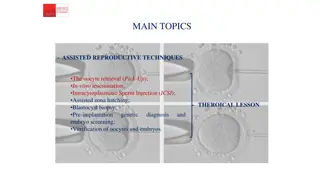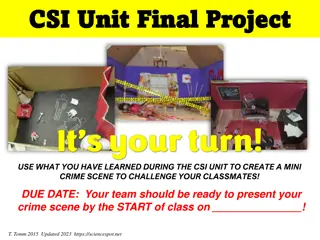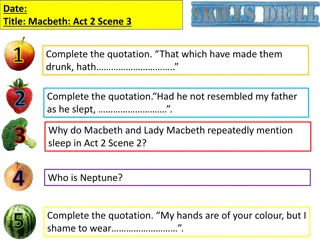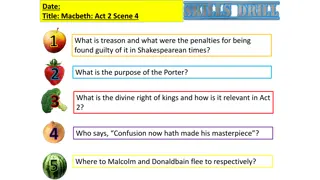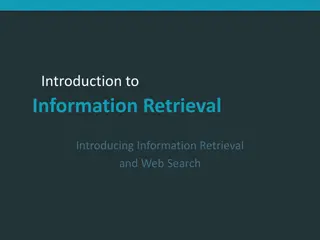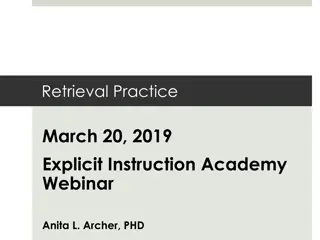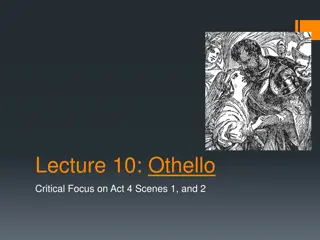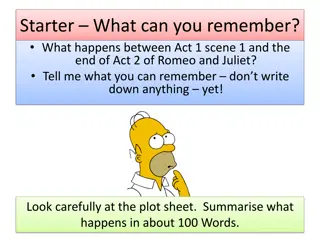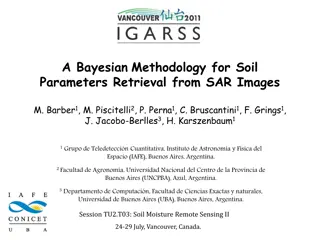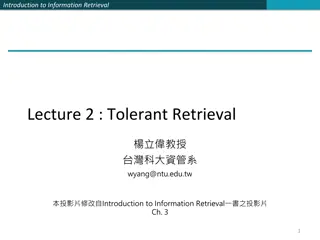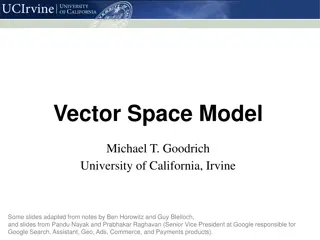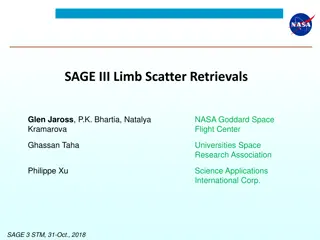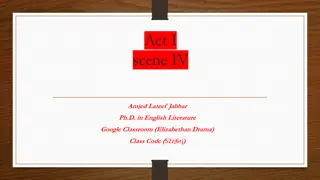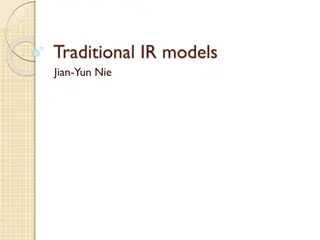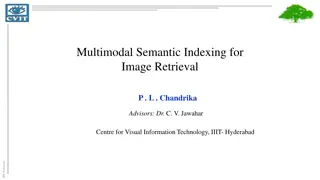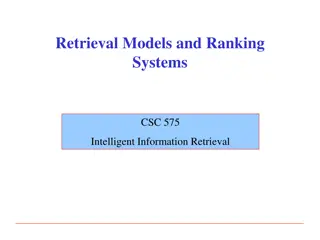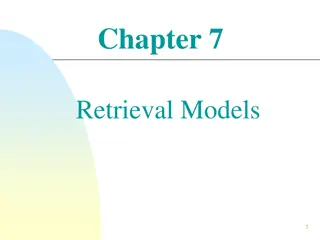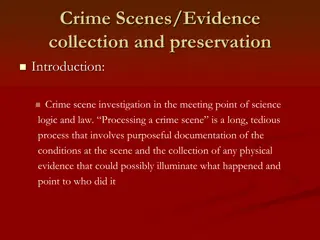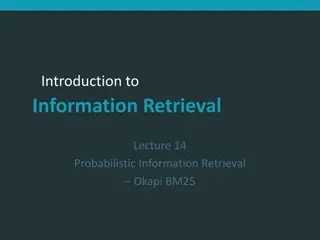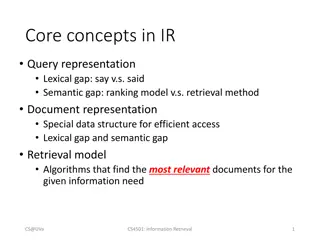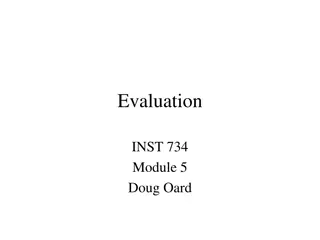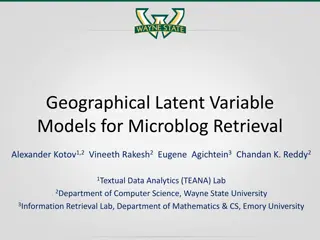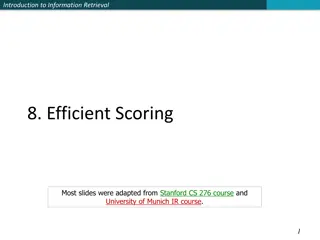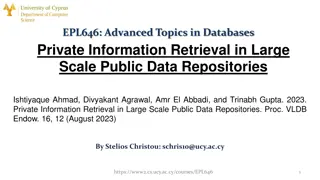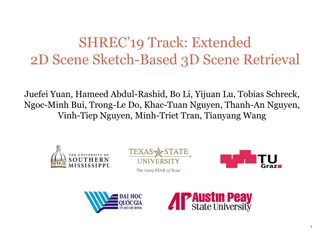Assisted Reproductive Techniques: Oocyte Retrieval Process
The process of oocyte retrieval in assisted reproductive techniques involves the careful retrieval of cumulus-oocyte complexes from follicular fluid under anesthesia and ultrasound guidance. These complexes are then sorted and stored before further procedures such as in-vitro insemination or intracy
1 views • 13 slides
Enhancing Geography Learning Through Metacognitive Retrieval Practice
Students in Geography can improve their learning by applying metacognitive retrieval practice techniques. Retrieval practice helps activate prior knowledge, enhances memory retention, and fosters critical thinking skills. Metacognition, which involves planning, monitoring, and evaluating one's learn
1 views • 19 slides
CSI Unit Final Project: Mini Crime Scene Challenge
Create a mini crime scene using what you've learned during the CSI unit to challenge your classmates. Your team will have four class periods to complete the project, including a case briefing, the crime scene setup, evidence collection, and a case summary. Remember to include descriptions of the cri
0 views • 12 slides
BTR: Binary Token Representations for Efficient Retrieval Augmented Language Models
Retrieval-augmented language models like BTR address issues such as hallucination by providing efficient solutions for encoding input passages and queries. By utilizing cacheable binary token representations, BTR offers a unique approach to decomposing and binarizing passage encoding to improve runt
0 views • 9 slides
Discovering the Porter in Macbeth's Act 2 Scene 3
Act 2 Scene 3 of Macbeth features the Porter's comedic interlude, providing relief from the tense atmosphere following Duncan's murder. The Porter's dialogue, filled with humorous references and wordplay, adds a layer of complexity to the play's themes. This scene contributes to building suspense an
2 views • 9 slides
Understanding Retrieval Practice in Learning
Retrieval practice is a powerful learning strategy that involves recalling previously learned material to strengthen memory, improve long-term retention, and identify gaps in knowledge. It helps in combating forgetting, enhancing understanding, reducing test anxiety, and promoting independent study
0 views • 26 slides
Enhancing Information Retrieval with Augmented Generation Models
Augmented generation models, such as REALM and RAG, integrate retrieval and generation tasks to improve information retrieval processes. These models leverage background knowledge and language models to enhance recall and candidate generation. REALM focuses on concatenation and retrieval operations,
1 views • 9 slides
Exploring Shakespeare's Macbeth: Act 2 Scene 4 Analysis
This analysis delves into Act 2 Scene 4 of Shakespeare's Macbeth, covering themes of treason, divine right of kings, and the role of the Porter. It explores the unnatural events surrounding Duncan's murder, the symbolic significance of animals, and the tension-building elements in the scene. The use
0 views • 6 slides
Analyzing Macbeth's Fear of Banquo in Act 3, Scene 1
In Act 3, Scene 1 of Macbeth, Macbeth expresses his fears about Banquo and his descendants. He worries about losing the crown and the consequences of his actions. Macbeth's fear of Banquo's lineage and his ambition for his own power are highlighted in this scene. The analysis delves into Macbeth's c
0 views • 15 slides
Introduction to Information Retrieval and Web Search
Information Retrieval (IR) involves finding unstructured material, typically text documents, within large collections stored on computers to satisfy information needs. This process extends beyond web search to include email search, corporate knowledge bases, and legal information retrieval. The text
0 views • 53 slides
Exploring Macbeth: Act 3, Scene 4 Analysis and Quotations
Dive into Act 3, Scene 4 of Macbeth where Macbeth encounters Banquo's ghost at a banquet. Explore key questions, comprehension queries, and an analysis of significant quotations related to the scene's language and context.
0 views • 16 slides
Enhancing Geography Learning Through Metacognitive Strategies and Retrieval Practice
Utilizing metacognition and retrieval practice can significantly improve students' learning in Geography by facilitating the activation of prior knowledge, enhancing memory retention, and promoting self-regulated learning. Metacognition involves planning, monitoring, and evaluating one's learning pr
0 views • 19 slides
Understanding the Importance of Retrieval Practice in Learning
Retrieval practice is a powerful learning strategy where information is actively recalled from memory, strengthening retention and reducing forgetting. This method not only aids in strengthening recall but also enhances long-term memory, improves understanding, and facilitates knowledge transfer to
0 views • 39 slides
Analysis of Othello's Downfall in Act 4 Scenes 1 and 2
In Act 4 Scene 1 of Othello, Iago manipulates Othello into believing in Desdemona's infidelity, intensifying Othello's jealousy and rage. The scene culminates in Othello publicly striking Desdemona, showcasing the depths of his descent into corruption. Meanwhile, Act 4 Scene 2 portrays Othello's com
1 views • 49 slides
Analysis of Conflict and Character Development in Romeo and Juliet Act 3 Scene 1
Act 3 Scene 1 of Romeo and Juliet delves into the escalating conflict between the Montagues and Capulets, showcasing how external factors influence character behavior. The scene unfolds in a public setting, highlighting the shift from humor to tragedy as Mercutio and Tybalt engage in a fatal duel. T
11 views • 16 slides
Bayesian Methodology for Soil Parameters Retrieval from SAR Images
Surface soil moisture retrieval is crucial for various applications such as climatic modeling, hydrological studies, and agronomy. This work focuses on developing a soil moisture retrieval algorithm using the SAOCOM L-Band polarimetric SAR system in Argentina. Limiting factors include spatial variab
1 views • 16 slides
Comprehensive Overview of Information Retrieval Techniques
This comprehensive overview delves into information retrieval concepts such as tolerant retrieval, inverted index, intersecting posting lists, and spelling correction. It also explores how Google utilizes the Boolean model for search queries and discusses various methods for spelling correction in d
2 views • 44 slides
Ranked Retrieval Models in Information Retrieval
Ranked retrieval in information retrieval systems offers an ordered list of top documents in response to free text queries, eliminating the issues of Boolean searches like "feast or famine". Users benefit from not being overwhelmed by vast result sets, as only the top results are presented. Scoring
0 views • 38 slides
Advanced Analysis of SAGE III Limb Scatter Retrievals
The proposed effort focuses on enhancing LaRC operational retrieval codes for SAGE LS data, correcting Level 1 radiances, and recommending LS operational scenarios. OMPS LS retrieval algorithms for aerosol and ozone, as well as the SAGE/M3 LS ozone retrieval approach, are detailed. Out-of-field stra
0 views • 12 slides
Efficient Solutions for Large-Scale Text Document Retrieval
In the realm of large-scale search and machine learning, implementing efficient solutions for text document retrieval is crucial. Techniques like inverted index and bitwise operations help overcome challenges of storage and sparsity in managing vast collections of documents. Measures like precision
0 views • 17 slides
Analysis of Act I Scene IV in Hamlet: Themes and Symbolism
Hamlet waits on the castle battlements for the ghost of the dead king to appear. Despite objections, he follows the ghost, setting a tone of nervous anticipation. The scene contrasts domestic and military settings, emphasizing urgency. The sound of cannon signals excessive drinking and partying at C
0 views • 15 slides
Understanding Information Retrieval Models and Processes
Delve into the world of information retrieval models with a focus on traditional approaches, main processes like indexing and retrieval, cases of one-term and multi-term queries, and the evolution of IR models from boolean to probabilistic and vector space models. Explore the concept of IR models, r
0 views • 65 slides
Multimodal Semantic Indexing for Image Retrieval at IIIT Hyderabad
This research delves into multimodal semantic indexing methods for image retrieval, focusing on extending Latent Semantic Indexing (LSI) and probabilistic LSI to a multi-modal setting. Contributions include the refinement of graph models and partitioning algorithms to enhance image retrieval from tr
1 views • 28 slides
Soil Moisture Retrieval Over Bare Surfaces Using Radar Observations
This study focuses on retrieving soil moisture over bare surfaces using radar observations and a lookup table representation of forward scattering. The research aims to develop a non-empirical and simple method for accurate soil moisture retrieval without the need for ancillary information. Issues w
0 views • 14 slides
Intelligent Information Retrieval: Models, Ranking, and Algorithms
Explore the intricacies of retrieval models, ranking systems, and algorithms in the field of Intelligent Information Retrieval. Learn about the construction of indices, matching and scoring processes, distinguishing between exact-match and best-match retrieval, ranking algorithms like Boolean matchi
0 views • 36 slides
Understanding Crime Scene Investigations Through Animal Evidence
Explore the role of animals in crime scene investigations, from using pigs as corpse models to analyzing evidence left behind by animals like flies, crows, and foxes. Learn how different types of evidence, such as plant DNA and bullet wounds, can provide valuable insights for investigators. Discover
0 views • 6 slides
Understanding Retrieval Models in Information Retrieval
Retrieval models play a crucial role in defining the search process, with various assumptions and ranking algorithms. Relevance, a complex concept, is central to these models, though subject to disagreement. An overview of different retrieval models like Boolean, Vector Space, and Probabilistic Mode
0 views • 56 slides
Crime Scenes and Evidence Collection: The Intersection of Science, Logic, and Law
Crime scene investigation is a meticulous process that involves documenting the scene conditions and collecting physical evidence to unravel the truth behind a crime. Understanding what constitutes a crime scene, the importance of evidence, conducting initial surveys, taking precautions, and conduct
0 views • 40 slides
Understanding Probabilistic Information Retrieval: Okapi BM25 Model
Probabilistic Information Retrieval plays a critical role in understanding user needs and matching them with relevant documents. This introduction explores the significance of using probabilities in Information Retrieval, focusing on topics such as classical probabilistic retrieval models, Okapi BM2
0 views • 27 slides
Understanding Core Concepts in Information Retrieval: Lexical and Semantic Gaps, Retrieval Models, and Algorithms
Explore the core concepts in Information Retrieval (IR) including lexical gaps like 'say' vs. 'said', semantic gaps, ranking models vs. retrieval methods, special data structures for efficient access, and algorithms for finding relevant documents. Understand the differences between IR and databases,
0 views • 46 slides
Evaluation Fundamentals and Interleaving Techniques in Information Retrieval
Explore the essentials of evaluation in Information Retrieval, covering topics like test collections, ranking, interleaving, and user studies. Understand batch and interleaved evaluation methods, user interaction feedback, and the motivation behind practical online retrieval evaluation. Dive into ba
0 views • 15 slides
Geographical Latent Variable Models for Microblog Retrieval
Addressing challenges in microblog retrieval such as vocabulary mismatch and multi-faceted relevance signals. Explore opportunities in leveraging lexical and non-lexical information, including geographical meta-data. Discuss prior work on utilizing timestamps and re-tweets, while also highlighting t
0 views • 19 slides
Understanding Act 2 Scene 3: The Role of the Nurse in Shakespeare's Romeo and Juliet
Act 2 Scene 3 of Shakespeare's Romeo and Juliet introduces the character of the Nurse, who serves as a confidante and maternal figure to Juliet. The Nurse's role in facilitating the relationship between Romeo and Juliet is crucial, and her bawdy nature adds depth to the play's dynamics. This scene a
0 views • 18 slides
Introduction to Information Retrieval and Web Search
Information Retrieval (IR) involves finding unstructured material, usually text documents, to satisfy information needs from large collections. This process is essential for various applications like web search, email search, and corporate knowledge bases. The evolution of unstructured vs. structure
0 views • 15 slides
TEMPO Simulation and Retrieval Tools Testing at SAO
TEMPO Simulation and Retrieval Tools and Algorithm Testing at SAO involved performing retrieval sensitivity studies, adapting VLIDORT for TEMPO radiance spectra, utilizing TEMPO SNR model for optical transmission calculations, and using climatological a priori data for trace gases. The studies focus
0 views • 4 slides
Geospatial Video Search and Viewable Scene Modeling
Explore the innovative research on georeferenced video search and viewable scene modeling. Learn about automatic annotation, camera direction modeling, data acquisition, and indexing for enhanced video retrieval. The study focuses on capturing the field-of-view, meta-data acquisition, and synchroniz
0 views • 15 slides
Efficient Scoring Techniques in Information Retrieval
Today's focus in Information Retrieval is on efficiently scoring and ranking documents matching a query from an inverted index. The goal is to assign scores to each document and select the top K highest scoring ones. Cutting down CPU usage for scoring while maintaining result quality is essential. T
0 views • 18 slides
Private Information Retrieval in Large-Scale Data Repositories
Private Information Retrieval (PIR) is a protocol that allows clients to retrieve data privately without revealing the query or returned data to the server or anyone spying on the network. Encrypting data on the server is not a solution due to security concerns related to server ownership. This adva
0 views • 31 slides
SHREC19 Track: Extended 2D Scene Sketch-Based 3D Scene Retrieval Overview
The SHREC19 Track focuses on Extended 2D Scene Sketch-Based 3D Scene Retrieval, aiming to retrieve relevant 3D scene models using scene sketches as input. This challenging research direction addresses the semantic gap between 2D sketches and accurate 3D scene models, with vast applications in 3D sce
0 views • 29 slides
Requirements for Semantic Biobanks and Global Biobank Data Retrieval
Explore the critical aspects of semantic interoperability in biobanking, highlighting the need for formal ontologies, comprehensive annotations, and model of meaning data. The (Generalized) Biomedical Retrieval Scenario underscores the importance of effective resource retrieval based on content-base
0 views • 16 slides
